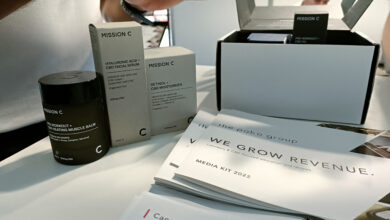
With many people turning to CBD to help with a number of ailments, CBD products and brands are becoming more popular than ever in the UK. No matter the quality of your product, you’re competing with every CBD brand out there (good or bad) and trying to increase your sales and brand awareness. On top of that, advertising restrictions in the UK for cannabis-derived products have made it increasingly difficult to get your brand in front of the customer. So, with all this in mind, we have compiled everything you need to know about CBD advertising UK to help your CBD business stand out from the competition.
Table of Contents
Is CBD legal in the UK?
CBD is legal in the UK, but a few conditions need to be met:
- CBD must be extracted from EU-approved industrial hemp
- It is illegal to sell CBD buds and flowers
- CBD products may not contain more than 1 mg of tetrahydrocannabinol (THC)
- To sell or promote CBD, you must be an authorised medical distributor
- You need a licence from the UK home office in order to produce CBD
- According to the Food Supplement Regulations 2003, CBD products must be properly labelled
- New CBD products classified as food and drink must submit a Novel Food Application
These are the most important laws regarding CBD products. You must abide by all these laws in order to remain on the right side of the law.
Classifications of CBD
The current regulation surrounding the CBD industry is not entirely clear. There are various classifications CBD can fit into depending on the consumption method, the use, and the amount of THC detectable in the strain.
Classification as a controlled substance
CBD flower and CBD bud both fall under the scope of the Misuse of Drugs Act, along with other illegal substances, such as cannabis. CBD oils may also fall under the controlled substance classification if THC is detectable in the product. When extracted from legal materials such as hemp, CBD and other non-psychoactive compounds are not considered controlled substances as they are not officially scheduled.
However, other psychoactive cannabinoids can also be extracted during the process. Therefore, a special licence is required for this CBD product. Whether and under what circumstances a product may be made available to the public will ultimately depend on whether it contains a controlled substance.
Classification as Novel Food
Novel Foods are defined as any food that was not majorly consumed in the EU before 1997. CBD was added to the Novel Food Catalogue in January 2019. This means CBD products will require pre-market authorisation. The UK Food Standard Agency set the deadline for 31st March 2021. Thus, CBD brands will have had to submit their CBD products for a Novel Food application (NFA).
Classification as medicine
The UK health authoritative body, Medicines and Healthcare products Regulatory Agency’s (MHRA) latest update in 2016, clarified that if CBD products are used for medicinal purposes, they are considered medication.
Classification as cosmetic product
CBD cosmetic products are normal cosmetic products infused with cannabidiol. There are nearly endless options, from CBD skincare to CBD makeup. There is also a lot of hype surrounding these CBD products, especially CBD skincare. Thanks to anecdotal accounts and mounting scientific evidence, people are flocking to CBD skincare products to help address skin concerns such as eczema and psoriasis.
Classification as vaping e-liquid
CBD e-liquids have taken off and become a popular option within the vaping community. Interestingly, CBD vape juice does not contain oil, as CBD oil is not designed for vaping. Instead, CBD extract, cannabinoids and terpenes are used.
It is important that these classifications are made, as the nature of the CBD product will influence the legal requirements and advertising regulations that need to be adhered to.
CBD advertising UK – Regulations
The above classifications need to be taken into account when advertising your CBD products so that you can ensure you are meeting all legal requirements. As mentioned, each classification comes with its own set of rules and conditions that need to be followed. Here we take a look at how each one is regulated.

CBD as a novel food
In 2019, CBD was reclassified under European law by the European Food Safety Authority (EFSA), which added it to the Novel Foods Catalogue.
The Novel Food Regulation applies to all “novel foods,” and products covered by this regulation cannot be marketed without clearance from the European Commission. This means that unless a company has applied for (and received) novel food status with the European Commission, it is illegal to sell or advertise a CBD product in the UK.
CBD in medicine
As mentioned above, the MHRA has determined that before products containing CBD meant for medicinal purposes can be sold or advertised in the UK, they must have a product licence from the MHRA.
CBD in cosmetic products
CBD products classified as cosmetics must meet the regulatory standards established by European regulations, including a Cosmetic Product Safety Report (CPSR).
Due to its presentation and claims as a cosmetic product, it risks being mistakenly thought of as a medicine. It is vital that the advertiser carefully assesses whether it must adhere to the prerequisites relating to medications as stated above.
Another vital thing to keep in mind is not to confuse CBD and THC when marketing your CBD cosmetic product. THC advertising is prohibited, so ensure you are clear about your CBD product and don't mention THC.
CBD in vaping e-liquid
Besides following the rules for advertising CBD, businesses selling CBD vaping liquids must abide by the laws governing advertising e-cigarettes and related products. These rules were established by the Advertising Standards Authority (ASA) and apply to all e-cigarette products – even ones that don't contain nicotine.
These regulations state that vaping and e-cigarette advertisements that are allowed to run in the media must be socially responsible and avoid being suggestive. This means no targeting children or making promising medical claims that cannot be supported.
Current Advertising Restrictions when Advertising CBD in the UK
The MHRA's latest update, clarified that if a CBD product is used for medicinal purposes, it is a medicine. However, as CBD regulations are still being developed and research is being carried out on the benefits of the substance, you cannot make any medical claims when advertising your CBD product. Fortunately, the MHRA provides guidelines on what you are permitted to say.
Avoid making medical claims
As CBD regulations are still being developed and research is being carried out on the benefits of the substance, the main guideline is not to make any medical claims when advertising your CBD product. The Food and Drug Administration (FDA) takes a no-nonsense approach to unsupported medical claims and will take down any advertisement that does so. According to them, “Deceptive marketing of unproven treatments raises significant public health concerns, as it may keep some patients from accessing appropriate, recognised therapies to treat serious and even fatal diseases.”
To stay on the safe side, ensure you avoid the following descriptive terms when advertising your CBD brand (The list is not exhaustive):
- Avoids
- Boosts
- Calms
- Cures
- Eliminates
- Fights
- Heals
- Prevents
- Protects against
- Relieves
- Repairs
- Restores
- Stops
- Treats
When advertising your CBD product, use highly subjective language to make beneficial claims, such as:
- Support
- Maintain
- Helps to maintain
At the end of the day, advertisements need to be socially responsible, meaning they can't promote illegal substances or make medical claims that could give false hope. Much more research is required until we can confirm the benefits of CBD. Until then, you need to be careful with the words you use when advertising your CBD products.
Take extra care to ensure the imagery and words you use do not link CBD to cannabis. Linking the two may put some people off from using CBD.
Avoid giving medical advice
While you are allowed to highlight the potential advantages of including CBD in your daily life, it is illegal to advise customers to use your CBD product to treat certain medical conditions or ailments. When trying to attract customers, you need to ensure every single thing you say can be supported by reputable sources and that you cite these sources where appropriate.
Difficulties you will face when advertising CBD in the UK online
It can be tricky advertising CBD products online, and not all platforms are the same. Here are some of the main channels and the difficulties you may face trying to advertise your CBD products.
CBD Advertising on Google
Here’s the harsh truth – Google removes most CBD campaigns in 7-14 days.
Google is one of the biggest platforms for driving traffic to your website. However, all CBD advertisements were restricted as they have classified it as a “dangerous product”.
If your advertisement for your CBD products happens to be approved by Google, Google Ads will remove your campaign as soon as it crawls your website and content.
CBD Advertising on Social Media
Most CBD companies struggle to advertise on social media. Here’s our breakdown of CBD advertising restrictions in the UK on each social media platform.

Facebook and Instagram
It’s possible to have a CBD advertisement approved on Facebook or Instagram. However, this is a very slim chance, and you must meet all their requirements.
Most CBD advertisements are disapproved, which can sometimes result in your account being shut down completely. Advertising on social media should not be your CBD company's first option or priority. Instead, focus on growing your reach organically.
Build rapport with your customers, repost pictures or stories of your products that customers have shared, and boost brand awareness with competitions and giveaways.
Research is key with Facebook and Instagram. Increase your reach with:
- Well-researched hashtags
- Location tags (if applicable)
- Tag influencers or relevant accounts
Snapchat
CBD advertisements have slowly started appearing on Snapchat as they have fewer rules and restrictions on paid CBD advertising, compared to other social media platforms. Snapchat even allows you to mention CBD or Hemp in the copy of your advertisement. However, you are still limited in what you can or can’t say in the advertisement. You cannot reference any medical claims or health benefits in the ad, and any promotion displayed in the advertisement is prohibited. This rules out any sales or discount codes. Furthermore, you need to ensure you mention that the product contains 0% THC; otherwise, the advertisement will be disapproved.
Twitter’s advertising policies prohibit the advertising or promotion of illegal, recreational or herbal drugs, removing Twitter entirely as an option for advertising CBD. However, this is only applicable to paid advertising options. You can still use Twitter as an engaging platform to target customers for your business. Twitter is the optimal solution for engaging directly with customer queries and potential customers.
Legally advertise CBD in the UK
Hopefully, all CBD products will someday be approved by the FDA, and it will be much easier to advertise your CBD products. However, until then, you must ensure you toe the line at all times.
Although the CBD market is booming in the UK, there are significant pitfalls that need to be avoided. Especially when it comes to advertising.
Before advertising a CBD product, you need to comply with all the above points regarding advertising regulations and ensure it is legal to sell the product in the UK. Unfortunately, as seen above, many advertising platforms have their own strict rules on advertising CBD. It can even cost your business if you don’t abide by them.
That being said, while these platforms are essential, don’t forget about more traditional advertising methods and frictionless channels. These include email campaigns, podcasts and influencers, which all allow CBD advertising.
However, if you're not keen on struggling by yourself, it may be easier to look to CBD advertising experts to ensure you get it right and avoid making mistakes that could cost you your business. Fortunately, we can help.
CBD advertising UK – Advertise on The Extract
Here at The Extract, we provide solutions to advertise your CBD business, increase your brand awareness and directly target the CBD market.
With a bit of help from us, your CBD business will be thriving in no time.
For expert advertising assistance, fill out the contact form here. Someone from our team will contact you shortly.





Hi There,
I am a Co-founder of Moods and Bears. Specialist in CBD Honey.
We are just launching our products to the market. I am now looking for an agency that will take care of our advertisement ,mainly via online and social media.
We are going to be listed very soon with distributors in the UK and we need to start as soon as possible.
Would love to hear your thoughts on this.
Looking forward to hearing from you
Many thanks
Joachim
Hi Joachim,
With Covid apologies we missed this initially, we are all wishing you the best of success with the business, honey sounds promising and innovative.
I would say the agency with the most experience is ORH Marketing, they learned in Canada and the US before working with brands in UK for the last 10 years.
Worth reaching out to at [email protected] – others might be out there that are good but none that we know of that have the CBD focus of ORH.
Hope the business is buzzing 🙂